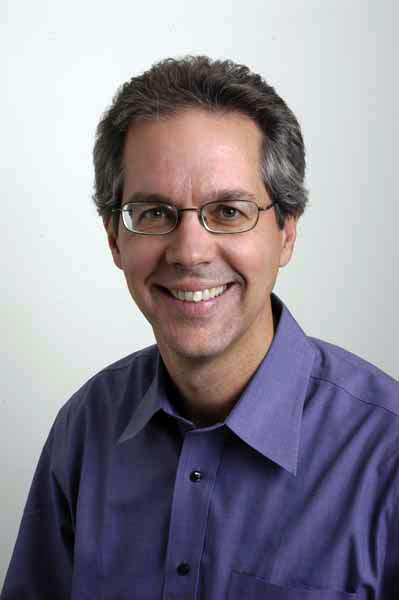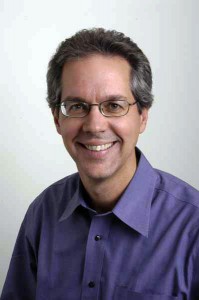John Scull is the managing director of Southern Cross Venture Partners, a $170 million venture capital firm based in Silicon Valley and Australia. An Apple executive turned technology entrepreneur, Scull, 54, admits he gets his pioneering spirit from his father, who brought his family to Indonesia in the 1950s as missionaries. Scull got first-hand lessons in adaptability as a TCK, learning to speak Bahasa fluently and becoming friends with locals. Now, the venture capitalist spends his time advising and looking for entrepreneurs who hope to make a global impact.
1. Where did you grow up?
I was born in Indonesia, and lived in Java and Sumatra. Growing up, the rule was we spoke Bahasa outside the house, but English in the house, where I was home schooled. If there were any Indonesians around us, we spoke Bahasa out of respect for them.
We moved to Singapore when I was 12, and lived there until I was 16. My dad changed from being a missionary, and went into private business. When he did that, the best place to do that was Singapore. After Singapore, we came back to States. I went to high school, then to university.
2. How did you get to where you are now?
Like many things in life, there is a little bit of preparation, but a lot of life is serendipitous. You go with whom you like to work with, and that leads you to a path that is quite interesting and entertaining.
After I did my MBA at Harvard, I thought I wanted to go back to Asia. I took a job at large commercial bank in New York City because they were the only companies that would let you go to Asia. After a few months working at the bank, I found I was fascinated with personal computers, so I left to work for a group that sold computers on Wall Street.
Then, as twist of fate would have it, one of the Apple board members liked what I was doing and introduced me to the management at Apple. I interviewed and met Steve Jobs and John Sculley, who was the CEO at the time. I was at Apple Computer for almost six years. One of my roles was starting a new effort called Desktop Publishing and we turned it into a billion dollar business. When you’re lucky to be successful like that, you get a lot of phone calls for opportunities.
3. What did you do after Apple?
I became the CEO of a startup company called Macromind, which is now Macromedia (owned by Adobe). Then, I started another company called PF Magic, and we sold that company in late ‘90s. By 2000, I was doing consulting work for venture capital (VC) firms.
I came across an opportunity with an Australian VC firm called Allen & Buckeridge. I’ve always wanted to do something international, but keep my residence in Silicon Valley, which I love. In 2006, I started a new VC firm called Southern Cross Venture Partners with one of the Allen & Buckeridge partners and a few other guys.
4. What does your typical day at Southern Cross look like?
We’re a $170 million early-stage technology fund. We focus on finding really smart technologists and entrepreneurs who have some meaningful connection to Australia or New Zealand. We also look for great teams that address a global market.
Typically, we have them set up headquarters here in the United States, oftentimes in Silicon Valley, where we can help them build out a managing team and get more funding from other VC firms. Hopefully the business grows and you help them along the path. After four to seven years, you hope to sell or exit your position in the company.
5. What qualities do look for in an entrepreneur?
I’ve seen all kinds of entrepreneurs. I think, at end of day, the most important characteristic is that you can deal with ambiguity. You can make decisions without perfect information. You can take risks and not worry if you fail, because you are going to fail if you try things you’ve never done before. The best entrepreneurs have the ability to try stuff, and if it works out, great. If it doesn’t, you get right back up and try again.
6. How did your TCK upbringing help your career?
My father in many ways is entrepreneurial. He left the comfort of the U.S. to go to Indonesia in the ‘50s to go start something new with lots of risk. At the time, my mother had three kids who were under the age of five, and was pregnant with me. It’s wacko. It’s pioneering spirit.
Obviously, I got some of that instinctively. But I also had to learn to deal with ambiguity. Whenever we moved, I had to form new friends, and become quite adaptable, quite flexible. I learned a different language and saw the world through different eyes. Most of my best friends were Muslim; I was Christian by upbringing. In Singapore, my friends were Hindu, Buddhist, Jewish… a whole mixture.
I think it’s helpful in the way you look at problems. You understand there’s no absolute right. You stay more flexible. You can try to solve problems in the best way, as opposed to your way.
7. Is there anything about being a TCK that held you back or created challenges in your career?
For the most part, it’s been only a real plus. Because of it, I’m more open-minded. In some situations, people are more ethnocentric, so I don’t click with those people well. They’re the “old boys.” But I wouldn’t want to work with them anyway.
8. What were some lessons you learned during your first years in venture capital?
At end of day, great people are what matter. Good ideas without great people don’t go very far.
9. How do you like being a venture capitalist?
I’ve always enjoyed doing things that make a difference and helping people improve the quality of what they do, whether it’s my daughters, the businesses I’ve helped create, or products that businesses have done. I enjoy helping people improve what they’re doing, and have a better life.
10. What advice would you give to TCKs who want to pursue a career in venture capital?
I think becoming an entrepreneur, working in small companies, really developing some expertise in an area is enormously valuable. Find a career that you enjoy doing with people you admire and like working with. That’s the most important. If you then decide venture capital is your path, that’s great, but you need to learn a lot about how products get introduced to the world. The best place to learn that is working at a startup, learning what it takes to create a successful company.


Very interesting article!
Mr. Scull has achieved a monumental amount, but his words are surprisingly honest and humble.
As a TCK (currently in Toronto) that is really interested in the tech scene and entrepreneurship I have pretty much come to same conclusion: it’s best for TCKs to work in small, tight-knit companies with open minded and smart people. If that condition is met, the really long hours of a startup don’t even matter! I’m personally learning everything I can about online advertising and lead gen – that’s gonna be my niche and I hope it will carry me to great opportunities with interesting people around the world.
There was an interesting TED talk (I bet all TCKs watch TED and wish they could go!) about a guide to getting happiness out of the working life.
Good things to look for in a job:
1.) Autonomy – be allowed to work and develop skills on your own, without being distracted too much by red tape or routines
2.) Mastery – feeling like you improve every day at what you do
3.) Purpose – most important one! That is, being able to answer “why?” every morning. I find that most TCKs gravitate to roles where they can help as many people as possible, and Mr. Scull has found his niche in the tech scene. Awesome!
LikeLike
Hey Nikita,
Thanks for the thoughtful response! Really insightful notes on autonomy, mastery and purpose. So true. I’m glad you enjoyed reading about John – he was really fun to talk to. Keep checking back for more interviews every week – I’ll be covering more techies and entrepreneurs 🙂
LikeLike